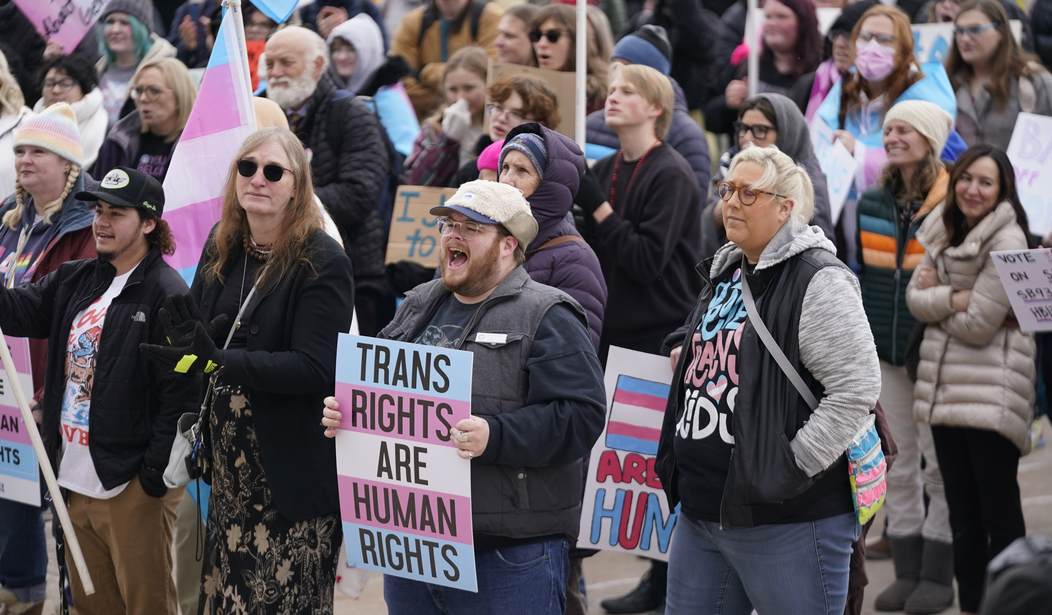In an encouraging sign of our times, there have been hints of progress recently in terms of actual misinformation that keeps showing up in the press. (As opposed to the “misinformation” claims made by liberal activists.) We’ve seen increasing admissions regarding topics ranging from the reality of Hunter Biden’s laptop and the efficacy of the COVID vaccines to the origins of the virus itself. But one area where the legacy media remains firmly entrenched in fantasyland is the subject of transgender “medical treatment” and the prevalence of people seeking detransition care. The Associated Press came out just last week with another lengthy “explainer” on the subject. And like so many others before them, they managed to get much of it entirely wrong.
Many states have enacted or contemplated limits or outright bans on transgender medical treatment, with conservative U.S. lawmakers saying they are worried about young people later regretting irreversible body-altering treatment.
But just how common is regret? And how many youth change their appearances with hormones or surgery only to later change their minds and detransition?
Here’s a look at some of the issues involved.
Sounds like an innocent enough introduction to the topic, right? They begin by attempting to define precisely what such treatment involves. Right out of the gate, the AP claims “guidelines call for thorough psychological assessments to confirm gender dysphoria… before starting any treatment.” That may be what some of the guidelines call for, but we already know from the testimony of too many people, particularly detrainsitioners, that there is often little to no psychological evaluation done before patients – particularly children – are rushed into the process. Sinead Watson was only one of many who showed that her “caregivers” made no effort to diagnose and treat her underlying depression and other mental disorders before pushing her into the transition process.
The AP then goes on to talk about puberty-blocking medication, saying that it can “give youngsters time to mature enough mentally and emotionally.” They do at least point out that puberty-blocking drugs “can increase risks for bone density loss.” But they then turn around and repeat the lie that the effect “reverses when the drugs are stopped.” That is completely false. As our own research has shown, the FDA has never approved those GnRH Agonists for use in the treatment of gender dysphoria and the effects are generally permanent and often severe. Those drugs are only used for precocious puberty and even then only for short periods of time under strict medical observations. Gender clinics are handing them out like candy.
The article next discusses hormone treatments and trans surgery, saying that those options are “sometimes offered during the mid-teen years but more typically not until age 18 or later.” That’s also false in far too many cases. The number of underage girls who have come forward after having their breasts removed is heartbreaking. They will never “regrow” their natural breasts and will never be able to breastfeed. As for genital mutilation, the irreversible nature of those procedures should be obvious to even the most casual observer.
The AP then cites the World Professional Association for Transgender Health which said “evidence of later regret is scant, but that patients should be told about the possibility during psychological counseling.” But the WPATH is a small international body that only exists to promote this social contagion and they do not allow any doctors who object. Tragically, too many professional medical associations in the United States cite that group when justifying their practices.
It’s articles like this that keep the dangerous myths about transgender “medical care” alive on the left. But the voices of the detrainsitioners are growing louder and the public is clearly waking up to these realities. Sadly, it will be far too late for the young people who were herded into this trap. And that’s probably the biggest tragedy of all because we’ve already learned that the vast majority of children who experience any sort of gender confusion grow out of it before reaching adulthood. And most of the rest are probably either gay or bisexual and find themselves confused while going through puberty. But once you take the drugs and/or go under the knife, there is no way to fully go back.








Join the conversation as a VIP Member